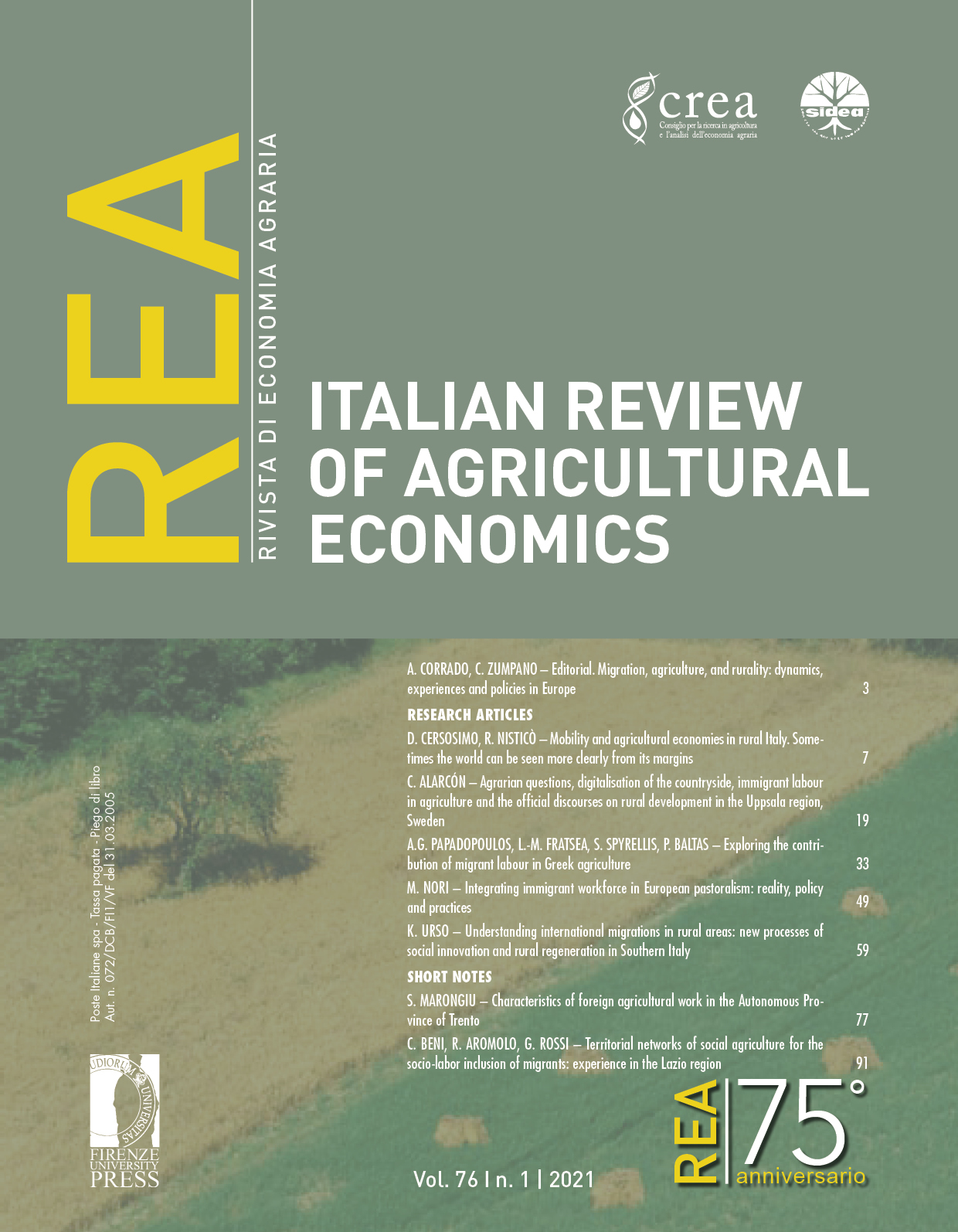Published 2021-05-10
Keywords
- farming,
- migrant labour,
- farm structure,
- agricultural employment,
- Greece
How to Cite
Abstract
A distinctive feature of Greek agriculture is its important position in the economy and society. Depending on the state of the national economy, and especially in times of economic recession, different population groups may consider agriculture as either a “sector of departure” or a “sector of arrival”. In Greece, migrant labour has become a major component of agricultural production and rural development, especially in areas where intensive agricultural systems prevail. The aim of this paper is to critically discuss the contribution of migrant employment to Greek agriculture in recent decades. First, the paper provides an overview of the academic discussion concerning migrants in rural Greece, offering a framework for interpreting migrant employment in Greek agriculture. This is followed by an analytical account of the structural characteristics of the Greek agricultural sector. Next, the focus turns to the changing features of migrant labour in Greek agriculture since the early 1990s. Methodologically, the paper synthesizes secondary data from various sources. The paper concludes with reflections on the prospects for migrant labour in Greek agriculture, particularly in an era of changing migration flows and restricted mobility due to COVID-19.


